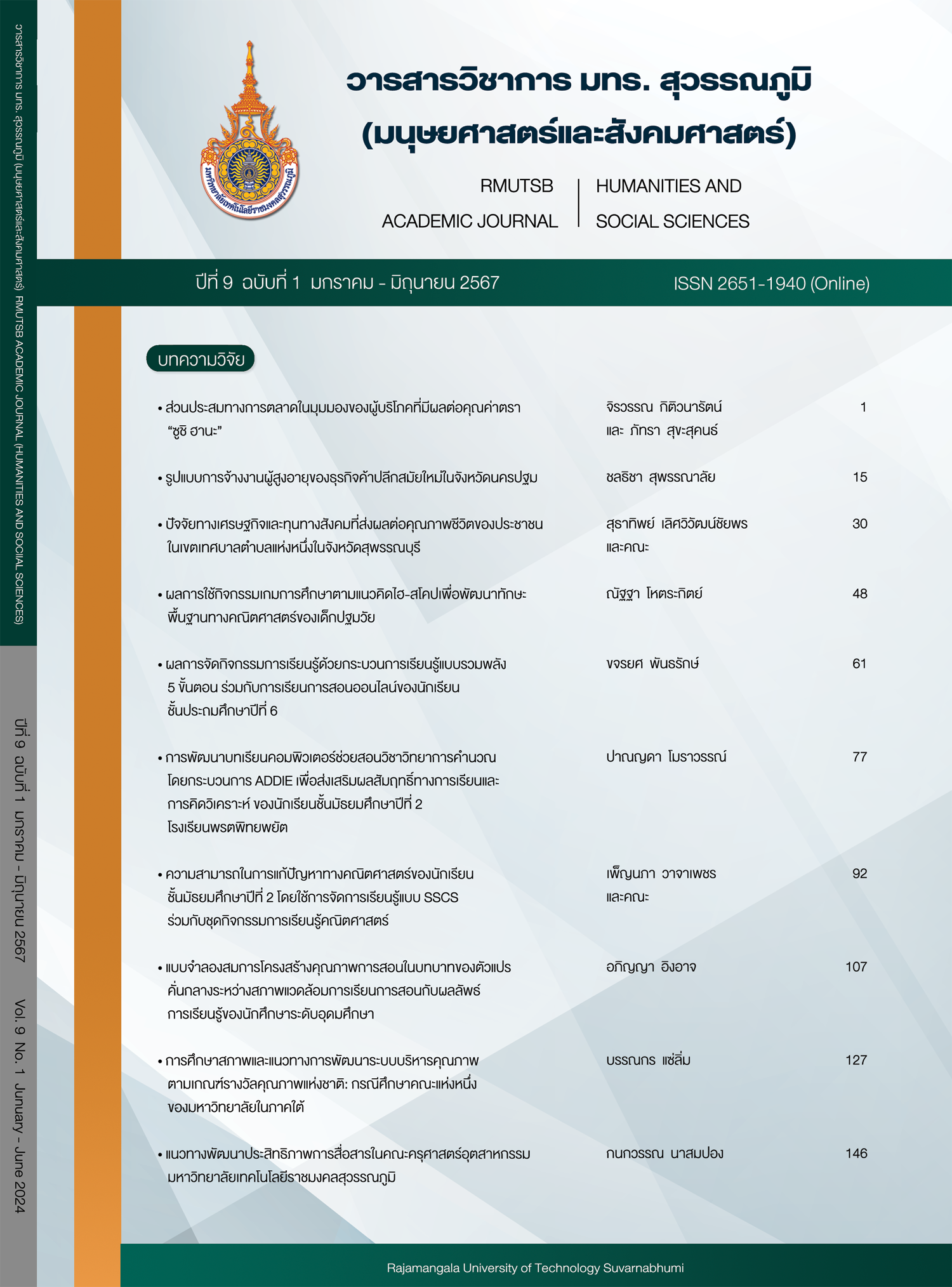The effect of high-scope educational gaming activities on basic mathematical skill development in early childhood children
Main Article Content
Abstract
The purposes of this study were to 1) develop high-scope educational gaming activities for early childhood children, and 2) compare the result of basic mathematical skills development in early childhood children before and after the implementation of high-scope educational gaming activities. The research sample was 30 early childhood children aged 5-6 years old studying in the second semester of the academic year 2021 at Taladbangbo (Sakpridaprachasan) School under the Chachoengsao Primary Educational Service Area Office 2. The sample was obtained using simple random sampling. The instruments used for collecting data were 1) high-scope educational gaming activities to improve the foundation of early childhood children’s mathematical skills, 2) educational game lesson plans, and 3) evaluation forms on early childhood children’s mathematical foundation. The statistics used for data analysis were mean, standard deviation, and t-test dependent hypotheses testing.
The results of the study revealed that 1) the implementation of high-scope educational gaming activities to improve the mathematical foundation skills of early childhood children was very suitable and 2) the high-scope educational gaming activities increased students' mathematical skills after implementation, with a statistical significance of 0.05 verifying the hypotheses.
Article Details

This work is licensed under a Creative Commons Attribution-NonCommercial-NoDerivatives 4.0 International License.
References
Epstein, A. S., & Hohmann, M. (2021). The high scope preschool curriculum. Bangkok: Research Institute for Policy Evaluation and Design, University of the Thai Chamber of Commerce.
Kammun, C. (2016). Comparison of language competency, mathematical competency and emotional intelligence of kindergartner level two between learning management using brain based learning and high scope approach (Master's thesis). Mahasarakham University, Mahasarakham. (in Thai)
Khammanee, T. (2019). Pedagogical science: Knowledge for organizing an effective learning process. Bangkok: Chulalongkorn University Press. (in Thai)
Nantharat, N. (2020). The development of basic thinking skills of early childhood based on learning experiences integrating high scope concept and educational game (Master’s thesis). Sakon Nakhon Rajabhat University, Sakon Nakhon. (in Thai)
Padungprasert, R., Maneewong, W., Pongsiri, W., & Chaowatthanakun, K. (2022). A study of learning achievement on application of conversion of 8thgrade students by learning management based on the STEM education together with game-based teaching methods. RMUTSB Academic Journal, (Humanities and Social Sciences), 7(2), 180-195. (in Thai)
Phutoson, P. (2018). The effect of educational management game activities on using mathematical skills of early childhood children (Master’s thesis). Nakhon Sawan Rajabhat University, Nakhon Sawan. (in Thai)
Srikampon, C. (2015). Comparisons of creative thinking and thinking ability in problem–solving for Anuban II students between the experience integration with high/scope method and the use of the little science house project. Graduate Studies Journal, 12(58), 164-165. (in Thai)
Thomas, L. (2010). A case study: The high/scope preschool curriculum and kindergarten readiness in the Pittsgrove township school districts (Doctoral dissertation). Seton Hall University, South Orange.
Treetuna, W. (2017). A development of learning experiences based on high-scope concept in promoting mathematical abilities for early-childhood students (Master’s thesis).Naresuan University, Phitsanulok. (in Thai)
Wanta, S. (2017). A development of mathematical basic skills of pre-school using educational games (Master’s thesis). Pibulsongkram Rajabhat University, Phitsanulok. (in Thai)


